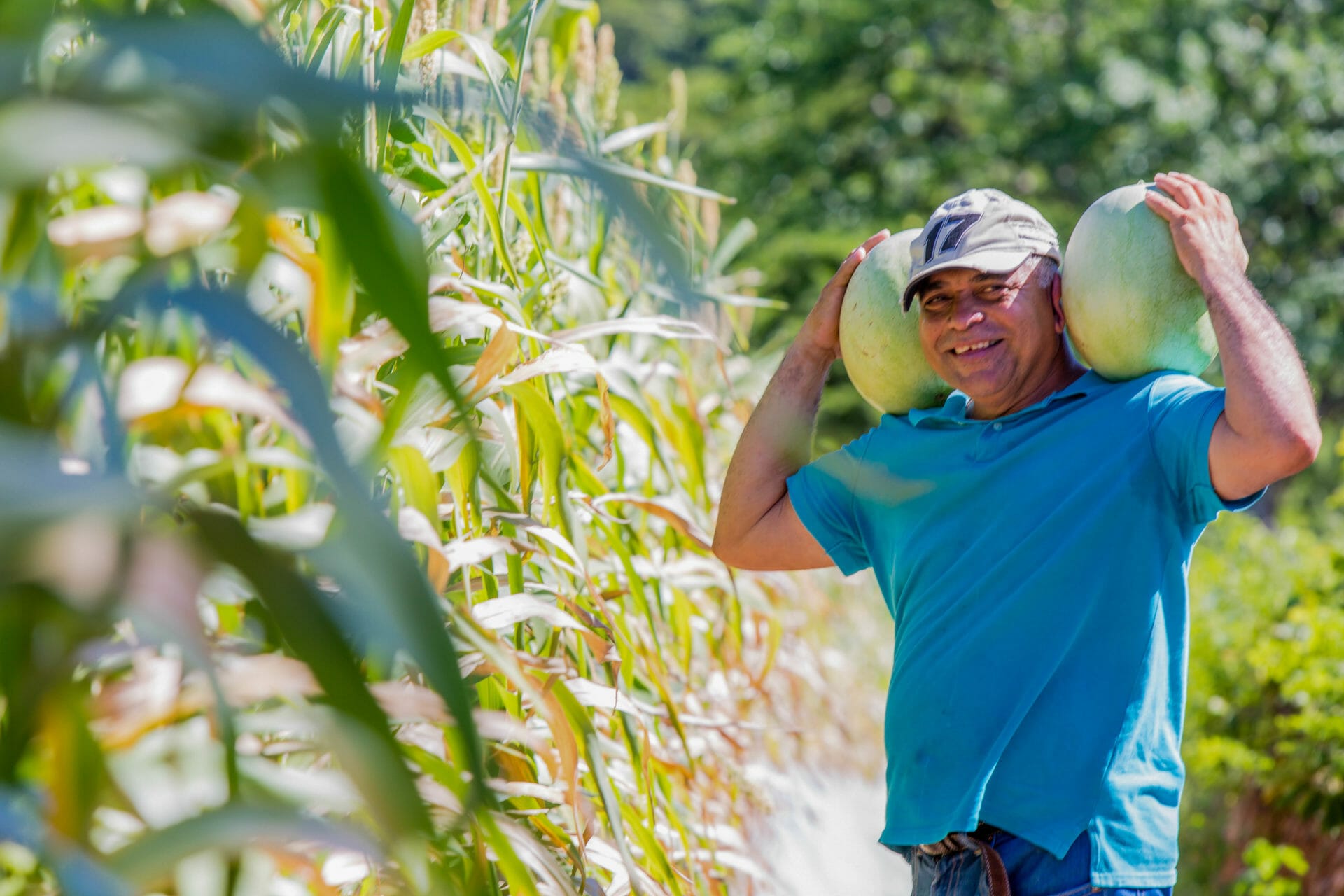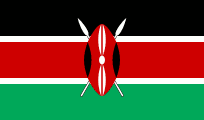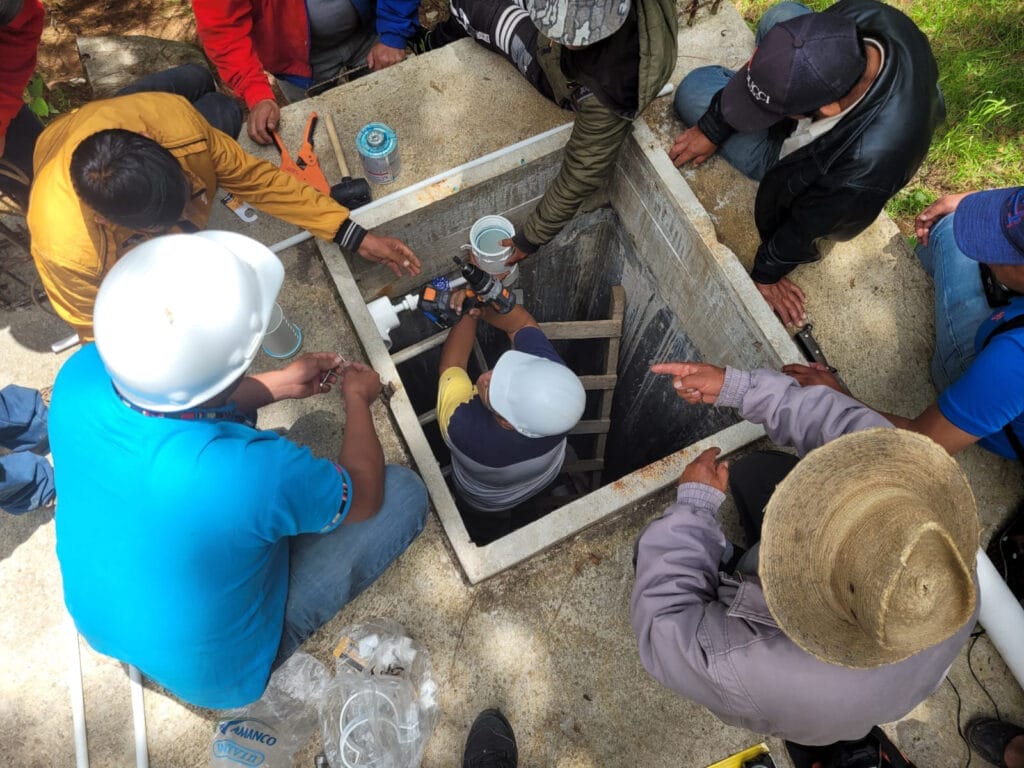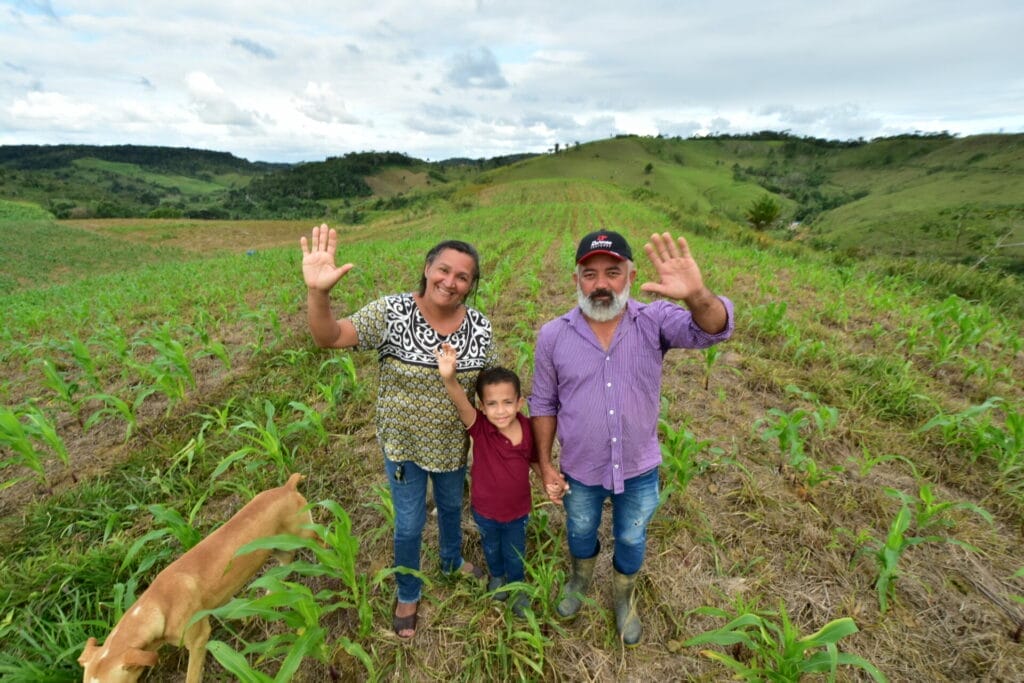Climate change has brought significant challenges to communities around the world and will only become more disruptive in the coming decades, adversely impacting human health, agriculture and food security, water supply, transportation, energy, ecosystems, and more. As weather patterns continue to change, vulnerable communities are the most affected. For many who rely on their own food production to survive, even small changes in weather can have a devastating impact on lives and livelihoods. An extreme weather event, such as flooding, can have catastrophic impacts on those who lack secure housing protection infrastructure.
Implementing proven, community-based approaches to increase resilience is vital to withstanding climate-related shocks in the short and long-term. Global Communities, through our climate action work, is committed to carrying forward climate change mitigation and adaptation activities across programs.
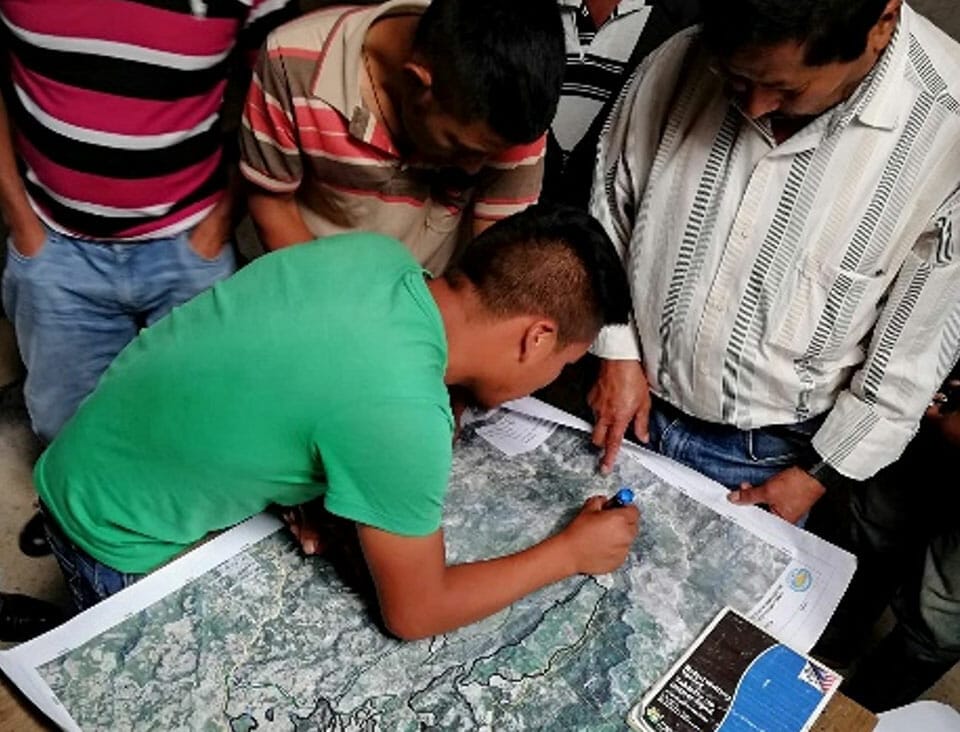
Impacts of Climate Change on Food Security and Livelihoods
Climate change can have a dramatic, negative effect on food security, water security, and livelihoods, leaving the world’s poorest at risk — particularly women and children. The disruptions resulting from cyclical droughts and floods directly impact food production, changes in purchasing power, market flows, and community health. Changes in average temperatures, rainfall, and climate extremes threaten to negatively affect crop production and livestock health.
Smallholder farmers and pastoralists in developing countries are especially vulnerable as their traditional knowledge and production systems struggle to keep pace with rapidly changing climatic threats. These agriculture-based livelihood systems, which are already under pressure to provide adequate food for hundreds of millions worldwide, face immediate risk of increased crop failure, new patterns of pest infestation, loss of biodiversity, and limited availability of seeds and planting materials adapted for new climate conditions. Their livestock productivity and mortality risk has increased due to inadequate access to water and reduced pasture and rangeland that supports grazing and healthy herds. These stressors make understanding and implementing environmentally friendly and nutritionally targeted agriculture practices even more important than ever before.
For pastoralists, who move their herds in search of fresh pasture and water, climate change has upended normal pasture growth patterns and led to substantially increased costs of traditional scouting for pasture and supplemental feed when no pasture can be found. Global Communities, then working as PCI, developed the AfriScout app to connect pastoralists with current information on water and vegetation conditions using localized community grazing maps, demonstrating how technology can help respond to climate change-related challenges. This mobile application uses the power of satellite and mobile technology to provide direct support to pastoralists seeking pasture and water for the animals they rely on to survive.
Global Communities integrates climate-smart technologies and practices across our programming, including:
- Conservation agriculture
- Introduction of climate-adapted crops
- Poduction of nutritionally dense vegetables and fruits
- Integrated pest management
- Improved crop storage systems
- Improved production of poultry, goats, and sheep as well as livestock grazing systems
- Support for local animal healthcare providers
- Rainwater harvesting and small-scale irrigation structures
- Regeneration of damaged watersheds through productive agroforestry approaches.
Learn more about our Agriculture and Food Security work here.
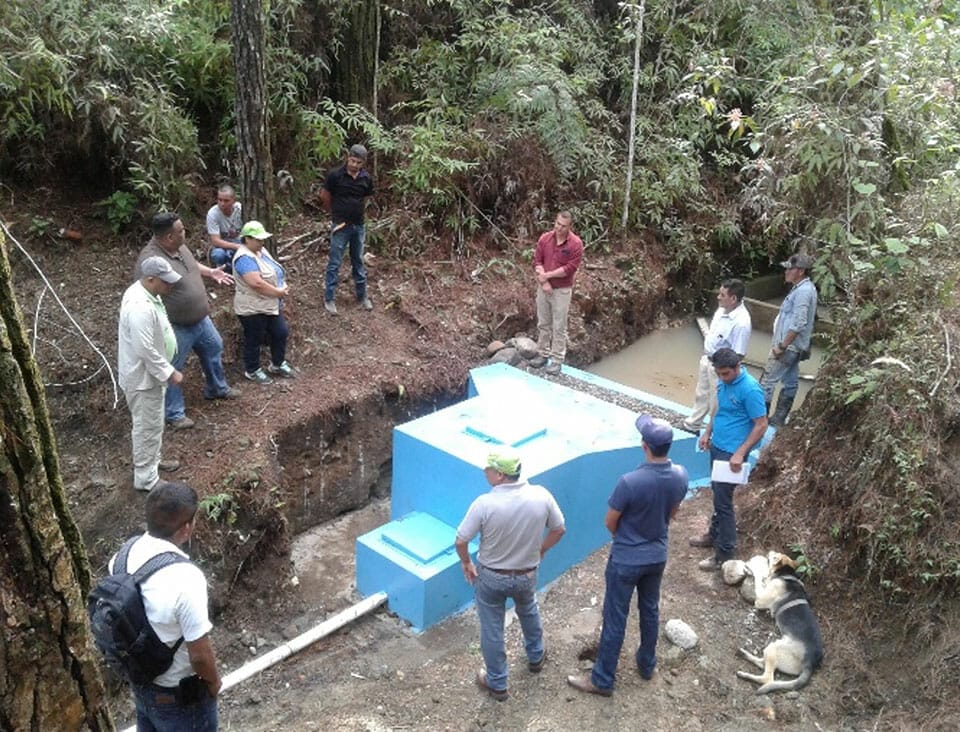
Ensuring Water Security in a Changing Climate
Climate change directly affects access, quantity, and quality of water, and makes sanitation systems more vulnerable to shocks, such as increased frequency and severity of floods, compounding potential environmental health risks. Ensuring sustainable access to water is critical to protect at-risk ecosystems and resources, as well as the social and economic welfare of vulnerable populations in the face of a changing climate. Global Communities integrates sustainable water management throughout our programs to build resilience in communities and ecosystems, with a particular focus on watershed protection, rehabilitation and management, and sustainable access to clean water.
Watershed Protection
Protecting watersheds in vulnerable areas is critical to rehabilitating the local environment, reducing runoff, soil erosion and increasing water availability and land productivity for affected farmers. Using large scale watershed approaches and adapting them to the local context, we work with communities to tailor strategies to address each watershed’s unique needs in transforming them from disturbed areas into productive landscapes. This process includes considering social, economic and environmental issues, as well as local community interests to mitigate short-term disasters and the longer-term impacts of climate change.
Water Security
Our work includes helping local governments and civil societies develop water, sanitation and hygiene services that are resilient in the face of persistent threats from climate change, including making strategic investments to mitigate future vulnerabilities. Climate change adaptation and mitigation can be a platform for enabling synergies among water resource users and an incentive to put effective water allocation and sharing systems in place. Strong local partnerships ensure the long-term sustainability of solutions that are equitable, environmentally sound and well-suited to the specific needs of each community, building their resilience to climate-related changes.
Learn more about our Water Security and Sustainable Water Services work here.
Adapting to Climate Change in Vulnerable Communities
With climate change comes increasing incidences of weather-related shocks and disasters. In vulnerable communities, the immediate and long-term effects of these ever more powerful storms and recurring drought disasters can be devastating. Working with local communities, we are building resilience to climate-related shocks by collaboratively identifying and developing strategies to address vulnerabilities in each local context. Learn more about our work building resilience in the face of climatic disasters here.
Contributing to a Better Future
In a program previously led by PCI, Global Communities is implementing a carbon capture initiative in the dry Western Highlands of Guatemala. With the generous support of Rick Steves’ Europe, the project works to reduce household carbon emissions through clean, efficient cookstoves, which dramatically reduce firewood-related deforestation and smoke-related health problems. We are also promoting locally manufactured water filters, which eliminate the need to boil water using firewood, and community-based reforestation efforts.
In our U.S. Department of Agriculture-supported McGovern-Dole Food for Education Programs, Global Communities has pioneered “Green Meals,” which introduce high-efficiency stoves along with tree seedling production in school nurseries and climate change learning curriculum for children.
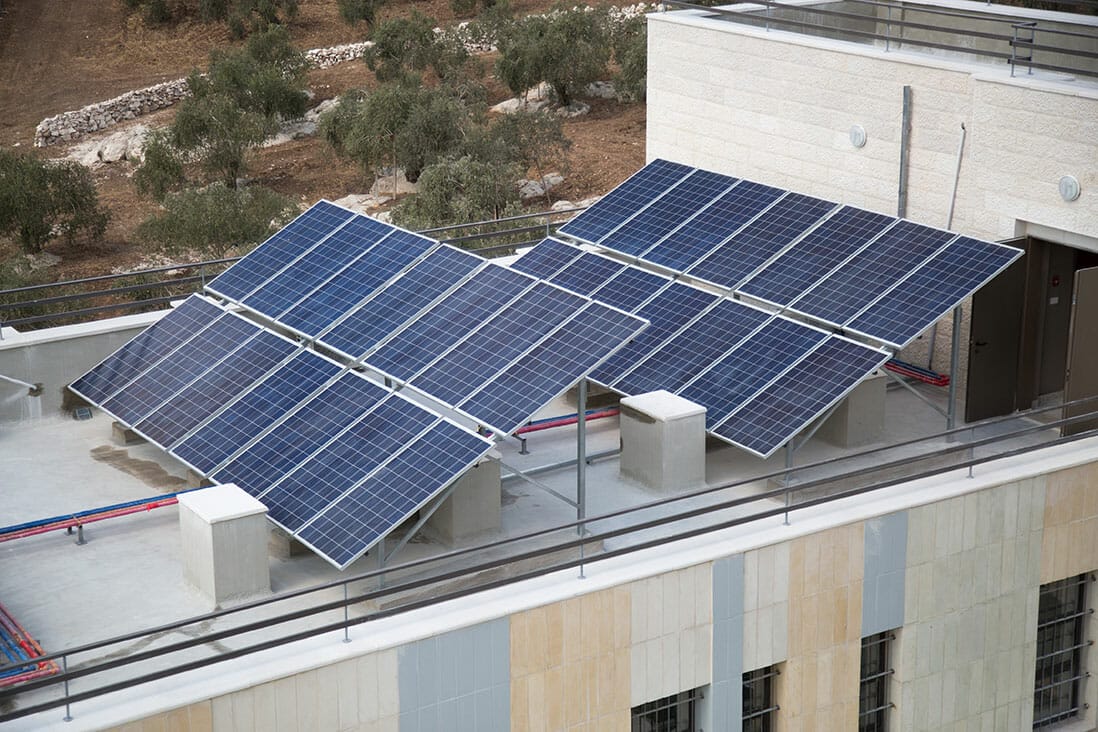
Our Approach
Global Communities brings a forward-thinking, proactive approach to climate action. Our work includes a range of adaptation and mitigation activities that bolster communities' ability to prepare for, recover from and adjust to the impacts of climate change without compromising long-term prospects. Our climate action work addresses the urgent, cross-cutting nature of climate change by combining innovative solutions with traditional knowledge to build resilient communities.
The impacts of climate change are considered across all our programs, however, our unique approach to climate action specifically targets vulnerable groups, including women and children, by integrating climate adaptation in food production and disaster risk reduction to avoid costly losses due to extreme weather events. To mitigate the potential negative environmental impact of our development efforts, we are also increasingly adopting “green” approaches, including conservation agriculture to preserve and enrich soil, utilization of combined energy efficient stoves and tree planting initiatives to stem deforestation and exploring opportunities for carbon sequestration within our programs.
Global Communities partners with local communities, public and private sector groups, universities, and others to mitigate and adapt to climate change by supporting communities as they:
- Diversify agricultural production and promote biodiversity preservation and food security
- Utilize principles of Holistic Management and Regenerative Agriculture
- Safeguard natural resources through communal management and efficient use
- Develop off-farm and non-farm livelihood opportunities
- Build community-centered approaches to addressing unique vulnerabilities and mitigation opportunities
- Rehabilitate watersheds that protect communities from extreme weather
- Establish early warning systems to avoid weather-related disasters
- Upgrade urban infrastructure and systems to better prepare for weather-related disaster.
2,770
farmers in Malawi, began using small-scale irrigation on more than 220 hectares of land through the USAID-funded Njira program
7,553
number of hectares rehabilitated through watershed management practices in Malawi under USAID-funded Njira program
338
homes equipped with clean, fuel-efficient cookstoves to reduce carbon emissions and improve health through reduced smoke in Guatemala through a creative partnership with Rick Steves’ Europe
130
schools participating in a Green Meals Program where schools will be equipped with large energy efficient stoves, tree nurseries, water-conserving demonstration gardens, and climate change curricula for students under our USDA-funded Mianatra Program in Madagascar
Our work in this area reaches:
Resources
Briefs & Case Studies
The School Garden Model
Pamoja Tuwalishe’s School Garden Model operationalizes the NSFG and will be utilized in the 367 program-supported schools. This Model will be used to train and equip schools to nurture nutritious school gardens that will serve as learning sites for students to practice climate-smart agricultural practices while contributing healthy harvests for the students’ meals at school.…
Briefs & Case Studies
Integrated Fleet Management System
Global Communities (GC) created and is utilizing an Integrated Fleet Management System (IFMS)which optimizes fleet performance by focusing on improving users’ experience while maximizingcost- effectiveness. Empowering and equipping the Fleet Team to achieve excellence, the IFMS is acomprehensive collection of systems, tools, and procedures that guide the supervision of the fleetteam, the management of in-house…
Briefs & Case Studies
The Community-led School Feeding Model
Pamoja Tuwalishe is an innovative school meals program t h a t i s supporting 367 schoolsand communities t o operationalize the National School Feeding Guidelines (NSFG). Implementedin support of the Government of Tanzania’s priority to improve learning outcomes andchildhood nutrition, the Pamoja Tuwalishe program is funded by USDA McGovern-Dole, andis implemented Global Communities in…
Research & Publications
Adapting Health Systems to Protect Children from the Impact of Climate Change: A Series
Prepared by The Child Health Task Force, Global Communities, and UNICEF The “Re-imagining the Package of Care for Children” series, co-hosted by the Child Health Task Force, Global Communities, and UNICEF, provided a platform to foster important discussions on how to adapt health systems to protect children from the challenges posed by the climate crisis.…
NEWS
Latest stories from the blog

School Meals Expand the Right to Food for a Better Life and Future
By Joseph Bangnikon, Sr. Technical Advisor, Food Security Many children in low-income countries endure their entire school day without a nutritious meal, a situation that …
Read More
